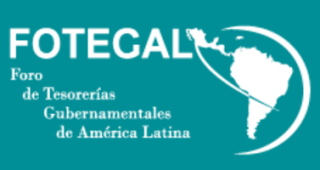Posted by Mario Pessoa[1]
During February 16-17, 2017 the Latin American Treasury Forum (FOTEGAL) together with the International Monetary Fund (IMF), the Inter-American Development Bank (IDB), the World Bank, and the Swiss Economic Cooperation (SECO) organized a high level workshop in Washington to discuss active cash investment and electronic payment systems.
The FAD Deputy Director, Chris Towe, emphasized in his opening remarks that investing excessive cash can potentially generate positive financial returns to the treasuries, but the challenge is to minimize risks and avoid a negative impact on the payment of government obligations. On the use of electronic payment systems, he pointed out that developments have been impressive. The challenge is how to incorporate these facilities in treasury’s operations and provide better services to the public.
John Gardner presented international experience on active cash management. He discussed how treasuries can use the opportunities offered by the financial markets to generate substantial returns. However, he warned that the most important pre-condition for justifying the investment of temporary surplus cash is accurate forecasting of the cash that flows through the treasury single account. Without this, treasurers may be placing cash on term deposits or repo when it is urgently required to make payments. Such placements are costly and might also require extra borrowing. A reasonably liquid money market and sufficient collateral to back-up term deposits at central banks must exist.
Oscar Lora described the benefits to the treasury of using available banking payment systems, and the multitude of electronic means of payment such as credit cards, debit cards, electronic transfers, e-commerce, and electronic wallets. Most of these products are available in almost all countries without having to invest much in hardware and software. It is important, however, for governments to define a clear strategy and identify the solutions that are most useful, least costly, and user friendly to citizens and taxpayers.
Ten countries participated in the workshop: Brazil, Colombia, Dominican Republic, Guatemala, Honduras, Mexico, Nicaragua, Panama, Paraguay, and Uruguay. The Treasurers presented recent reforms and achievements in their countries, and discussed the challenges that lie ahead. The Costa Rican Treasury will host the next FOTEGAL seminar in July 2017.
For more information on FOTEGAL go to http://www.fotegal.org/
[1] Deputy Division Chief, Public Financial Management II Division, Fiscal Affairs Department, IMF.
Note: The posts on the IMF PFM Blog should not be reported as representing the views of the IMF. The views expressed are those of the authors and do not necessarily represent those of the IMF or IMF policy.








